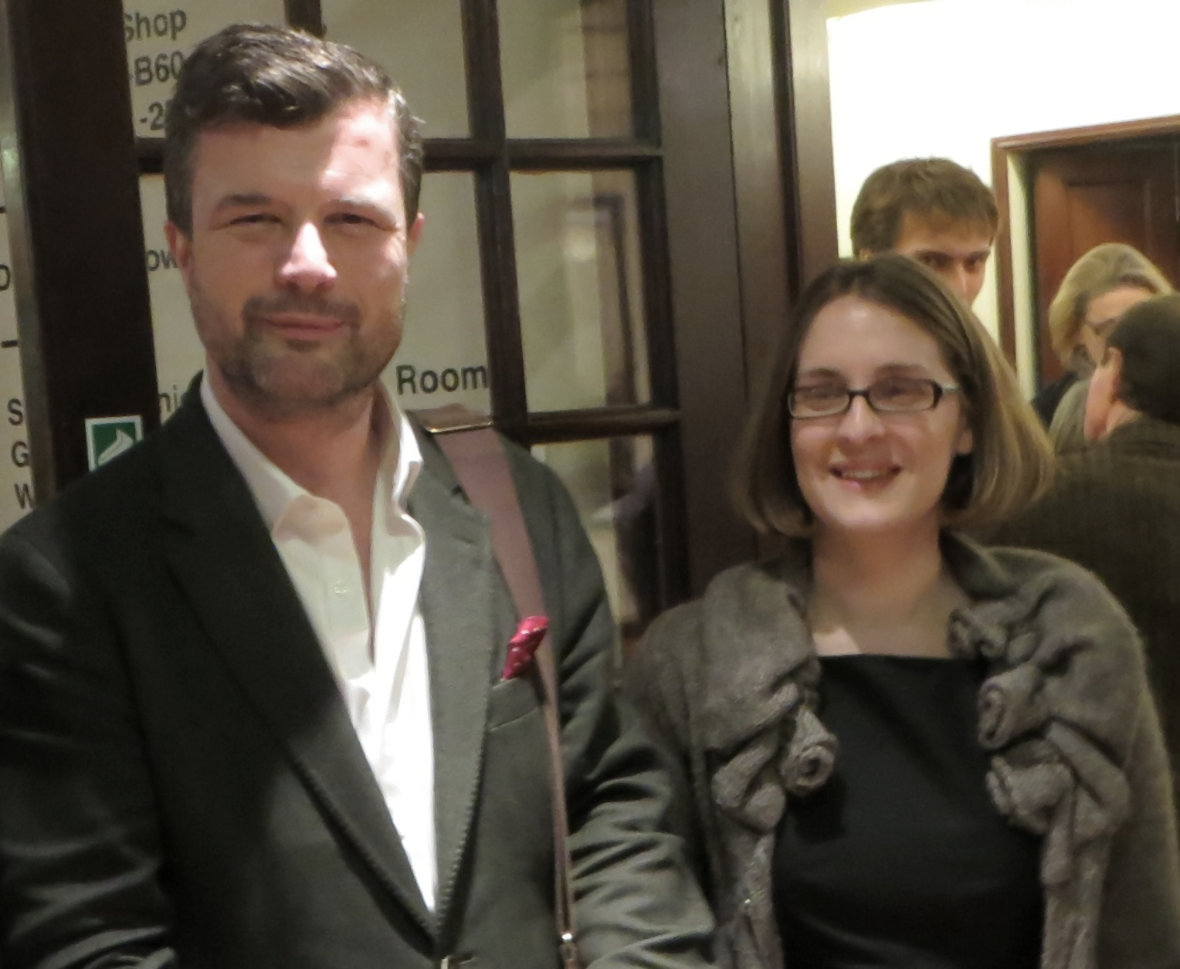Berkeley Day at Royal Academy of Music
The guitar takes centre stage at the Royal Academy of Music’s annual Berkeley Day
This year the guitar took centre stage at the Royal Academy of Music/LBS annual Berkeley Day. Michael Butten opened the programme playing the Sonatina, before being joined by fellow student Julian Gregory to perform four songs by the Elizabethan composer John Dowland. After a performance of Britten’s Nocturnal after Dowland, Butten and Gregory concluded their recital with Sir Lennox’s Songs of the Half-Light, settings of Walter de la Mare, written in 1964 for Peter Pears and Julian Bream.
Bream, a patron of the Society, was mentioned frequently during the afternoon. Interviewed on stage, Lennox’s son Julian Berkeley discussed how the two men started collaborating: they were introduced by Sir John Manduell (as the Society’s founder President recalled in the 2012 Journal), and Bream’s ‘engaging personality’ immediately appealed to Lennox. “Quite apart from their interaction on technical problems,” Julian Berkeley said, “they worked with a tremendous degree of trust”. He thought his father acquired “an instinctive feeling for Bream’s stylistic manner”, and that Bream “knew how to draw out the essence of Lennox’s material in a magical way”.
Lennox’s first work for guitar, Quatre pièces pour la guitare, was written in 1928 for the Spanish virtuoso Andrés Segovia, and the 1970 Theme & Variations was dedicated to the Italian guitarist and musicologist Angelo Gilardino, who discovered the Segovia set. But the trio of major works for the instrument, the Sonatina, Songs of the Half-Light and Guitar Concerto were composed for Bream. Chairman Petroc Trelawny commented that ill-health had prevented Mr Bream from contributing to the day’s talk, but noted that the guitarist remained very proud of what he and Lennox had achieved together.
Julian Berkeley said that writing for the guitar “called for very particular skills and sensitivities, in order to make the most of the instrument’s compass and comparatively small dynamic range”. And he pointed out that if a composer became truly attuned to the guitar, “he can turn what might appear to be limitations into means of great expressiveness. I think this is the key to understanding Lennox’s response to the guitar and the way in which his musical language lent itself to the task”. Julian Berkeley suggested members might like to explore YouTube for a rich archive of performances of his father’s guitar works, including some by Bream himself. We hope a selection of these will soon be available to view on the society’s website at www.lennoxberkeley.org.uk.

Speaking from the stage, the chairman thanked Mr Noriyuki Ida for his generous and ongoing support of the Royal Academy/LBS Berkeley Day, in memory of his daughter, the pianist (and Berkeley Society committee member) Kumiko Ida who died suddenly in 2007, aged only 38. He also welcomed fellow committee member Christopher Daly, who founded the Society’s prestigious annual Guitar Prize. Mr Daly introduced four recipients to the audience, Alastair Roberts (2011), Cassandra Mathews (2012), Merlin Miller (2013) and this year’s winner, Ashley Blasse, a student at the Royal Academy.
The Royal Academy of Music presented an expanded version of this same programme on Berkeley’s birthday, May 12, which drew unconditional praise from the Daily Telegraph for its rediscovery of ‘overlooked musical treasure’.